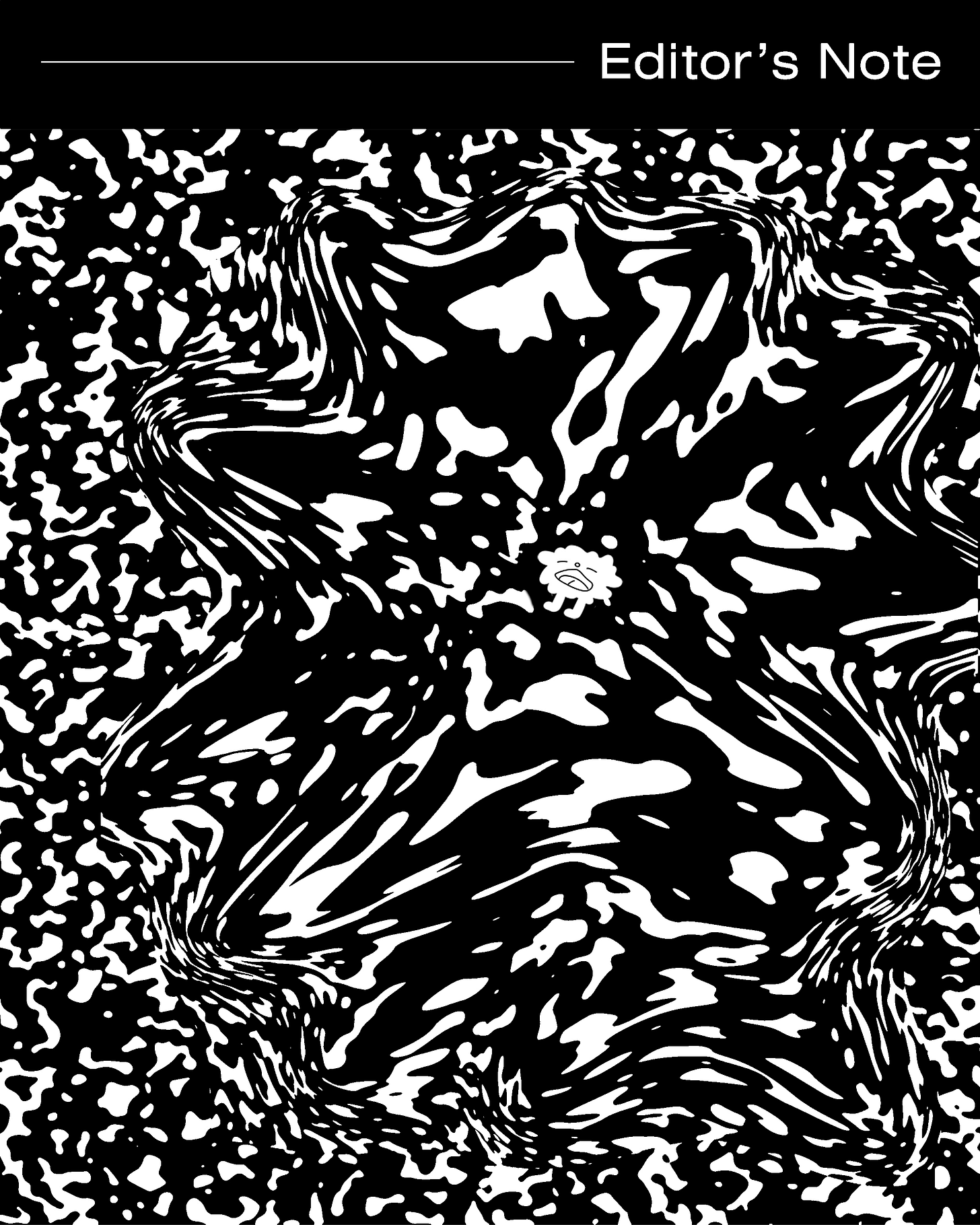Editor’s Note
Context! Is! Optional!
I began writing in elementary school. Our teachers encouraged us to journal, scribble, and note down whatever thoughts and feelings ran through us into clear and readable sentences. It was to practice articulation — an attempt to make the curriculum personal and encourage literacy and creative writing at an early age. During this awkward period, I wrote down everything — small crushes I had, petty squabbles with friends, grievances with family. As I wrote more, my mind eventually wandered towards imagination; I remember being engrossed in a piece of action-fiction, entitled “Monkey vs. Airplane,” and beaming with happiness.
Growing up, my parents and grandparents primarily spoke in Korean, or Hangul, around the house. They would chat, gossip, and ruminate about the news in both the U.S. and Korea over breakfast bowls of hot noodles and containers of fermented banchan. Despite sending me to multiple Korean-language learning schools (Hagwuns), I never learned how to speak the language — spending most of my home life half-understanding the conversations within it.
Later in college, I was told that King Sejong created the Korean language as a tool for nationalism in the face of imperialism. The language was meant to simplify adjacent languages and allow Koreans to realize themselves within their own words. When I searched King Sejong on the internet, Wikipedia’s meta-description listed him primarily as an “effective military planner”.
One afternoon, in fifth grade, I was rolling around the seafoam green carpet in the master bedroom and discovered my school journals splayed open on the bathroom vanity. I stopped writing about my life after this.
I shifted my attention towards theater — acting in plays and musicals in front of an audience. As a shit teenager, I stumbled onto the equation of the more of a reaction I get from the audience, the more they’ll pay attention to me. Unfortunately, this worked and I was applauded. People laughed, and I was desperate for their laughter. The period after high school, I spiraled into many other passions — film and photoshop; David Lynch and punk music; guided meditations and drunk cooking. I had my first panic attack at a party I threw in the winter of 2017. As soon as people began to show up, I retreated into my dark bedroom, regretting that I invited them over in the first place.
A couple of years after college, I was moving for a job, and my friend Jean gifted me the record “Purple Mountains” by Purple Mountains, the moniker for poet-slash-musician David Berman. The warm, lush timber of the instrumentation (provided by the excellent Woods!) gave life to Berman’s catastrophe-ridden yet brilliantly written lyrics. The words, however devastating they were, were meticulously cared for — plainspoken and perfect, and this effect sent me down a rabbit hole of Berman’s work. It was the first time I actually read contemporary poetry and enjoyed the feelings it stirred.
It is a certain hill.
The one I imagine when I hear the word “hill,”
and if the apocalypse turns out
to be a world-wide nervous breakdown,
if our five billion minds collapse at once,
well I’d call that a surprise ending
and this hill would still be beautiful,
a place I wouldn’t mind dying
alone or with you.
— from ”Self-Portrait at 28” by David Berman
Language sets a boundary between what is said and unsaid. We can cross the boundary and bring the unsaid into shape — codifying the abstract into actual. Engaging with language, and learning how to communicate gives you admission to the conversation.
At work, I had a secret pad of post-it notes, tucked underneath my lunch pail. Whenever a line came to me, I wrote it down and jammed the note into my backpack. After commuting home, I shook my backpack open and a poem would fall out.
In retrospect, whatever desire I had for attention overshadowed a hidden desire for articulation. When I write, the words jumble into non-sentences. Tenses mixed. Passive voice everywhere. Only after am I given the chance to arrange the pieces into readability. I still reckon with writing and publishing as swipes for attention. The desire for articulation, I think, cannot help but coincide with the desire for attention.
I hope that this clanging-around of pots and pans is, at the very least, not a total waste of time. I hope it’s a nicer waste — the kind that can be recycled anew.




